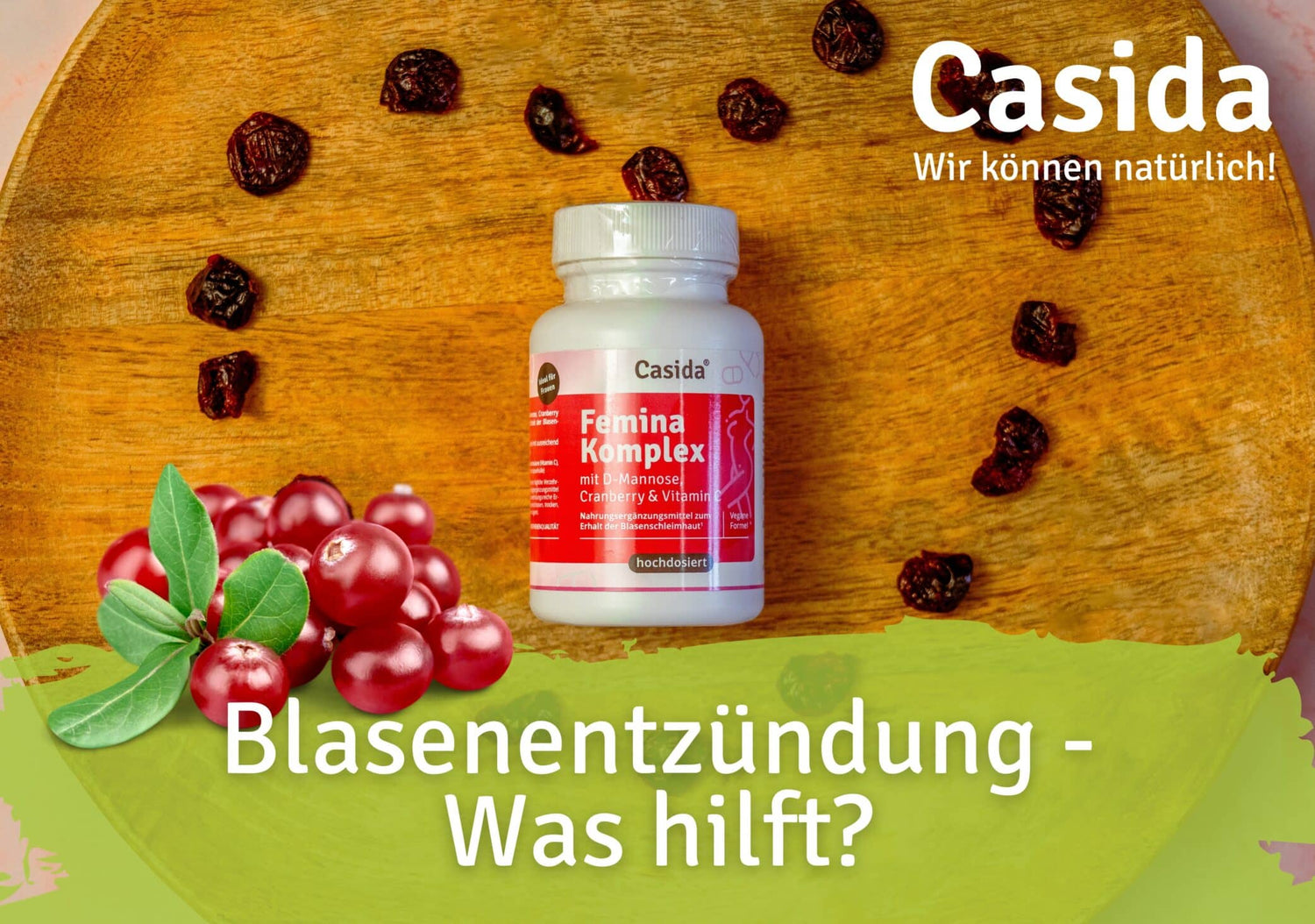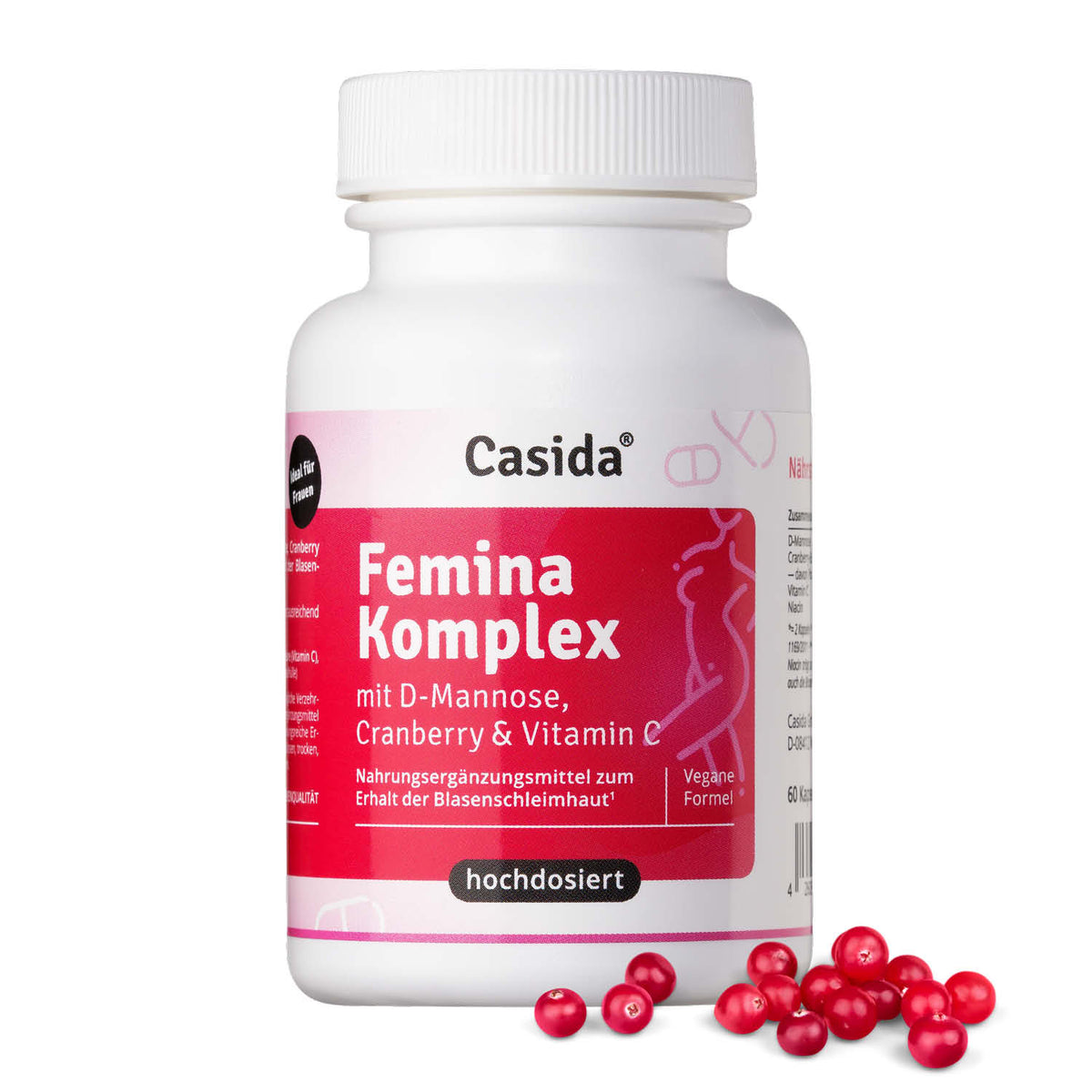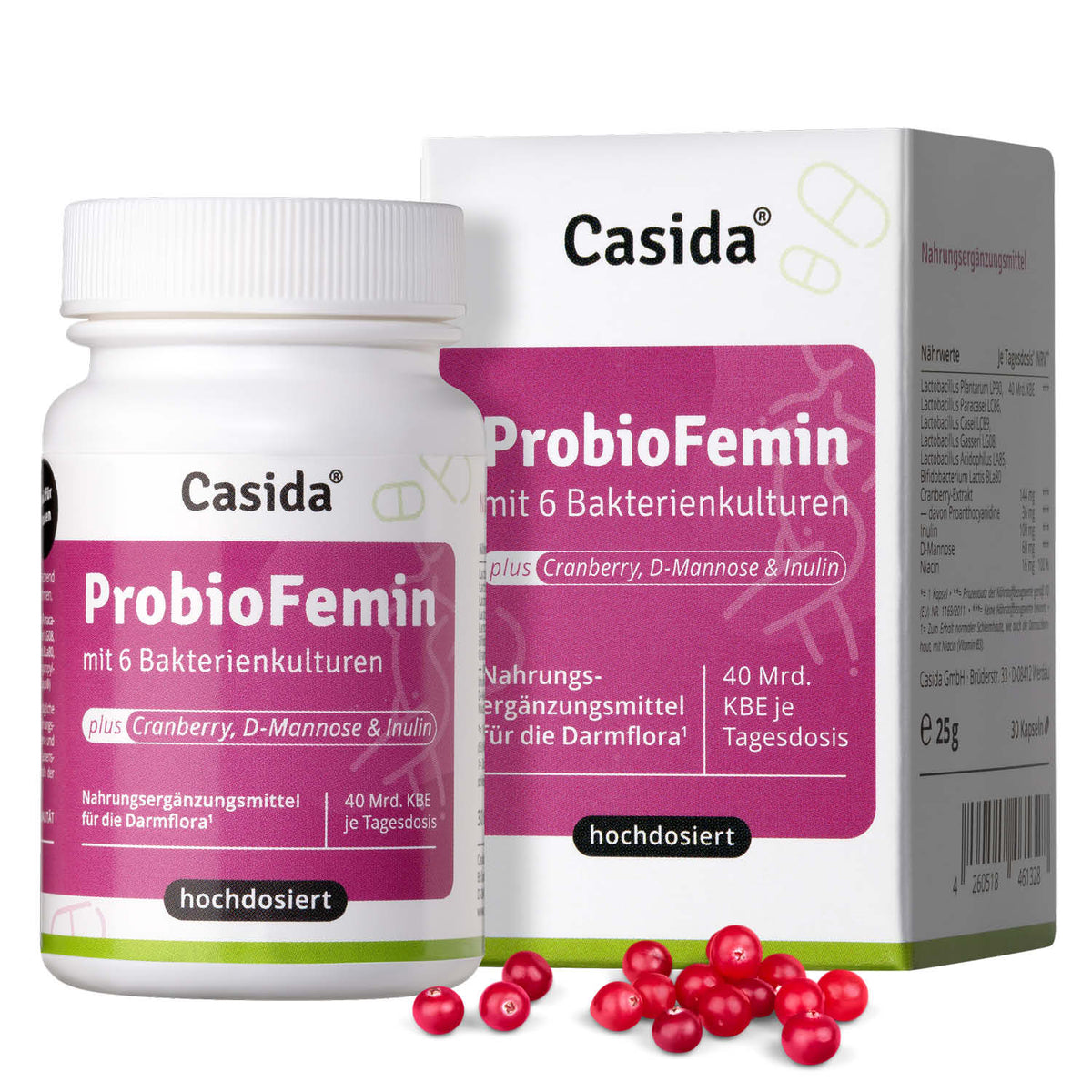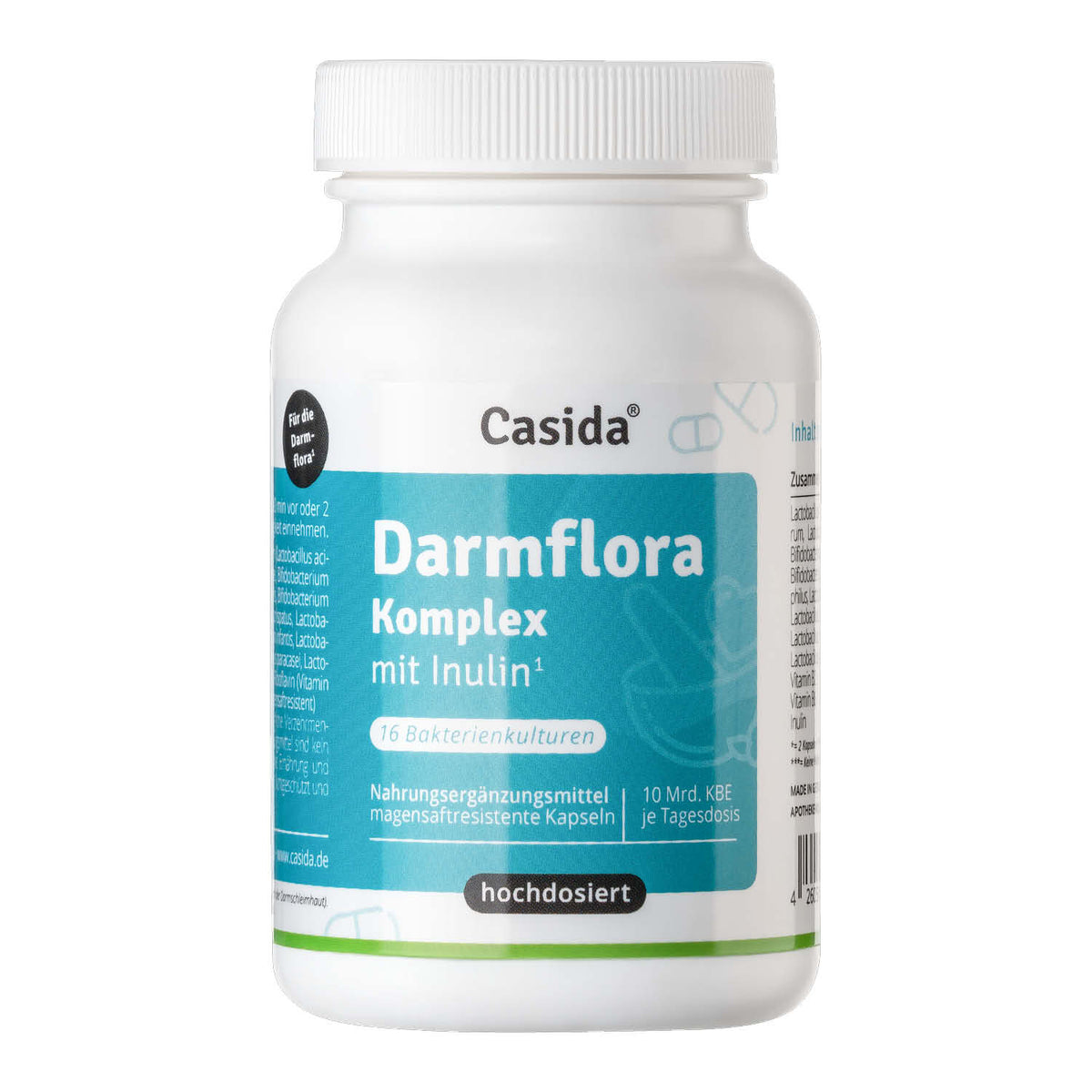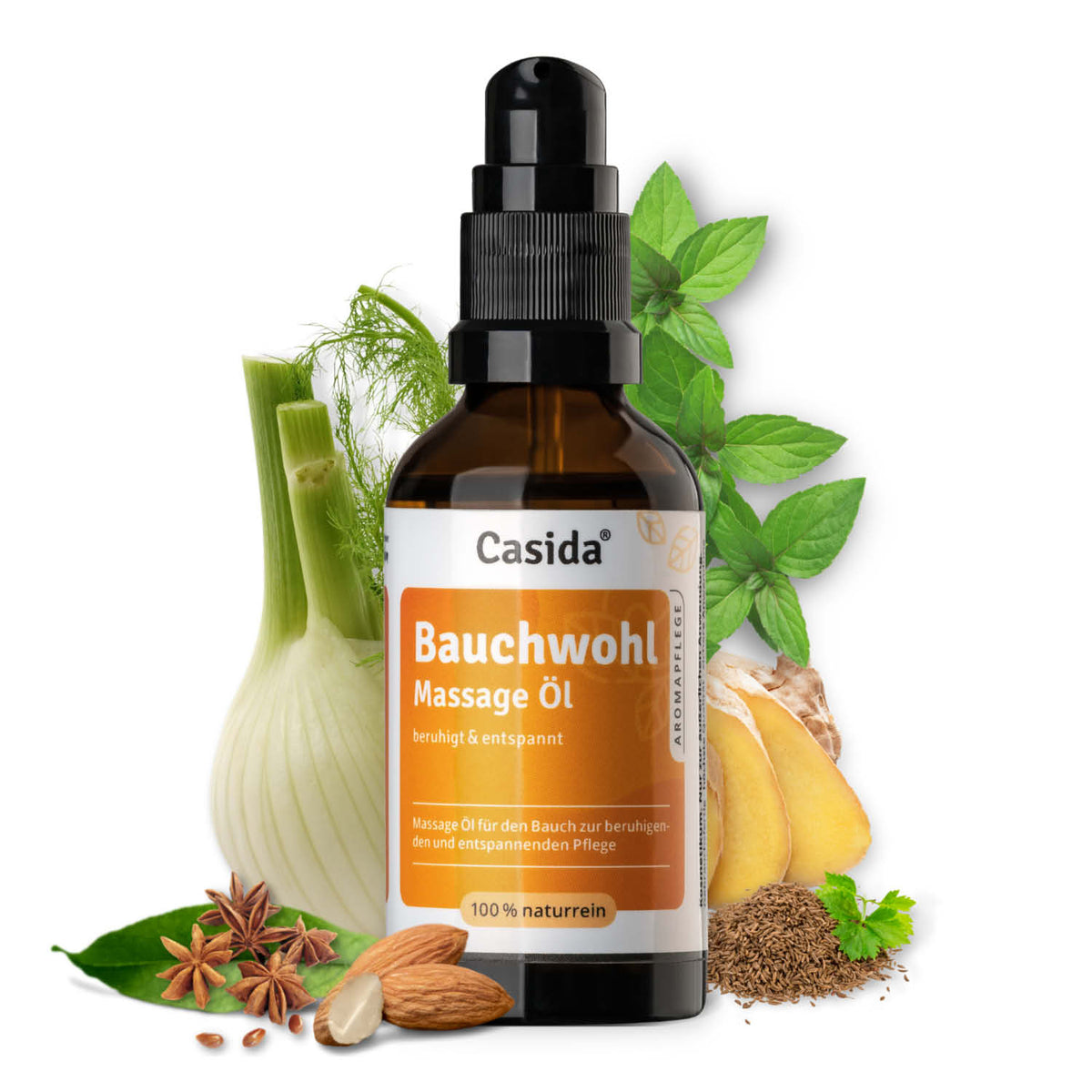Bladder inflammation, also known medically as cystitis, is an inflammation of the bladder. The causes can vary, but it is usually caused by a bacterial infection. This disease can be very unpleasant: pain and burning when urinating as well as a constant urge to urinate are very distressing for those affected.
Women in particular are affected by cystitis. Some even suffer from cystitis on a regular basis, which can have a significant impact on daily life. Advanced bladder infections often have to be treated with antibiotics to prevent the pathogens from ascending and endangering the kidneys. If bladder irritation or inflammation is detected early, most cases can be treated effectively. It makes sense to take preventative measures to care for the bladder mucosa in order to reduce the risk of infection. Cranberry and mannose are popular natural active ingredients for preventing cystitis. If you follow a few tips for bladder care, the chances of avoiding recurring infections are good.
Table of contents
Development of cystitis
The infection is usually caused by bacteria that enter the urethra and multiply in the bladder. The short urethra in women and its proximity to the anus favor the ascent of bacteria. This is why women are more often affected by bladder infections than men. If urine remains in the bladder for a long time because going to the toilet is delayed, the bacteria have ample opportunity to multiply. During the menopause, women have an increased risk of urinary tract infections and cystitis.
Natural prevention
Cranberry and mannose are two natural substances that have proven effective in the prevention and treatment of bladder infections. Heat can also have health-promoting effects. The basic requirement is to drink enough to flush the bladder well. Teas with horsetail or field horsetail, nettle, goldenrod, birch leaves and orthosiphon leaves are suitable here.
Cranberry for cystitis
Cranberries, which originate from North America, are rich in bioactive compounds such as proanthocyanidins (PACs). These PACs act as natural anti-adhesives and are said to reduce the adhesion of bacteria to the mucous membranes of the urinary tract. This makes it more difficult for bacteria to adhere to the mucous membranes and cause an infection. We recommend taking highly concentrated cranberry extract in the form of tablets or capsules.
Mannose for cystitis
D-mannose is a simple sugar that is found in some fruits. It is hardly metabolized and thus reaches the bladder almost unchanged, where it is supposed to prevent E. coli bacteria from adhering to the walls of the urinary tract by docking to the bacteria. This flushes the bacteria out of the body before they can cause an infection. Mannose is often used as a dietary supplement to prevent and treat bladder infections.
Cranberry and mannose - a powerful duo
The interaction of cranberry and D-mannose can have a synergistic effect. While cranberries prevent bacteria from adhering, D-mannose can bind the bacteria directly and promote their elimination. The combination of both can therefore have a stronger effect than either substance on its own.
Prevent bladder inflammation
Drinking plenty of fluids, especially water and unsweetened tea, flushes the urinary tract. Frequent urination helps to flush out the bacteria and thus prevent the pathogens from colonizing and multiplying. Cleaning from front to back after using the toilet can prevent bacteria from entering the urethra.
Conclusion of the Casida pharmacists
Cranberry and D-mannose have gained popularity as natural approaches to prevent and support the treatment of cystitis. They can be considered as a preventative and complementary measure in consultation with a doctor or pharmacist.
Sources
- Lenger, S.M.; Bradley, M.S.; Thomas, D.A.; Bertolet, M.H.; Lowder, J.L.; Sutcliffe, S. D-mannose vs other agents for recurrent urinary tract infection prevention in adult women: A systematic review and meta-analysis. Am. J. Obstet. Gynecol. 2020, 223, e1-e13.
- Vicariotto, F. Effectiveness of an association of a cranberry dry extract, D-mannose, and the two microorganisms Lactobacillus plantarum LP01 and Lactobacillus paracasei LPC09 in women affected by cystitis: A pilot study. J. Clin. Gastroenterol. 2014, 48, S96-S101.




